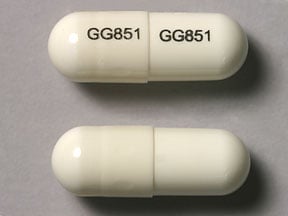
Ampicillin Coupons & Savings Card – Discount Prices from $13.96
Ampicillin is a penicillin-type antibiotic used to treat various bacterial infections, including those affecting the urinary and reproductive systems, stomach, and respiratory tract, as well as meningitis. It is effective by halting the growth of bacteria and preventing them from building their protective cell walls. Although it is not typically the first-choice antibiotic for infections like strep throat or urinary tract infections due to antibiotic resistance, it remains a valuable treatment option for both adults and children. Ampicillin is typically taken orally in capsule form, four times a day. Common side effects may include nausea and diarrhea. It's important to use this antibiotic only for bacterial infections, as misuse can lead to decreased effectiveness in the future. Always consult a healthcare provider for advice tailored to your health needs.
Our coupons are free to use. Before paying, show the pharmacist your Ampicillin savings card to get your free discount. Use our filters below to edit the prescription box to match your needs. The Ampicillin prices will update based on your prescription needs. Above our Ampicillin coupons, you can change your location to see pharmacy prices and costs in other areas. We're here to help you buy Ampicillin at the lowest price with our prescription discount card.
My prescription
Edit
500MG, Ampicillin (28 Capsules)
Select pharmacy

CVS
$24.52
COUPON PRICE
Walgreens
$13.96
COUPON PRICE
Albertsons
$15.19
COUPON PRICE
Walmart
$16.20
COUPON PRICEAmpicillin savings card
Show this card to your pharmacist
Walgreens
$13.96
BIN
ID
PCN
GRP
011867
LHEEACA102
HT
LABH001
Powered by
Ampicillin is a penicillin-type antibiotic used to treat various bacterial infections, including those affecting the urinary and reproductive systems, stomach, and respiratory tract, as well as meningitis. It is effective by halting the growth of bacteria and preventing them from building their protective cell walls. Although it is not typically the first-choice antibiotic for infections like strep throat or urinary tract infections due to antibiotic resistance, it remains a valuable treatment option for both adults and children. Ampicillin is typically taken orally in capsule form, four times a day. Common side effects may include nausea and diarrhea. It's important to use this antibiotic only for bacterial infections, as misuse can lead to decreased effectiveness in the future. Always consult a healthcare provider for advice tailored to your health needs.
Our coupons are free to use. Before paying, show the pharmacist your Ampicillin savings card to get your free discount. Use our filters below to edit the prescription box to match your needs. The Ampicillin prices will update based on your prescription needs. Above our Ampicillin coupons, you can change your location to see pharmacy prices and costs in other areas. We're here to help you buy Ampicillin at the lowest price with our prescription discount card.
Related penicillin antibiotics prescriptions
coupons from$5.50Save 63%
coupons from$6.22Save 99%
coupons from$1.01Save 100%
coupons from$14.36Save 50%
More prescriptions for urinary tract infection
coupons from$77.70Save 93%
coupons from$51.02Save 93%
coupons from$27.16Save 96%
coupons from$261.11Save 19%
coupons from$91.31Save 65%
coupons from$12.81Save 82%
coupons from$22.90Save 71%
coupons from$9.63Save 86%
Related penicillin antibiotics prescriptions
Amoxicillin Save 63%coupons from $5.50
Oxacillin Save 99%coupons from $6.22
Unasyn Save 100%coupons from $1.01
Dicloxacillin Save 50%coupons from $14.36
More prescriptions for urinary tract infection
Solodyn Save 93%coupons from $77.70
Ustell Save 93%coupons from $51.02
Acticlate Save 96%coupons from $27.16
Hyophen Save 19%coupons from $261.11
Ery-tab Save 65%coupons from $91.31
Eq Urinary Pain Relief Save 82%coupons from $12.81
Ocuflox Save 71%coupons from $22.90
Amoxicillin-clavulanate Save 86%coupons from $9.63
Ampicillin dosage forms
Use our Ampicillin 500MG coupon with prices from $16.20 for 28 Capsules. You can also use our Ampicillin 500MG coupon with prices from $12.29 for 20 Capsules. We have a Ampicillin 500MG coupon with prices from $17.18 for 30 Capsules. You can use our Ampicillin 500MG coupon with prices from $22.08 for 40 Capsules.
Dosage Quantity Price from Per unit 500MG 28 Capsules $16.20 $0.58 500MG 20 Capsules $12.29 $0.61 500MG 30 Capsules $17.18 $0.57 500MG 40 Capsules $22.08 $0.55 500MG 100 Capsules $40.51 $0.41 500MG 500 Capsules $137.35 $0.28
| Dosage | Quantity | Price from | Per unit |
|---|---|---|---|
| 500MG | 28 Capsules | $16.20 | $0.58 |
| 500MG | 20 Capsules | $12.29 | $0.61 |
| 500MG | 30 Capsules | $17.18 | $0.57 |
| 500MG | 40 Capsules | $22.08 | $0.55 |
| 500MG | 100 Capsules | $40.51 | $0.41 |
| 500MG | 500 Capsules | $137.35 | $0.28 |
